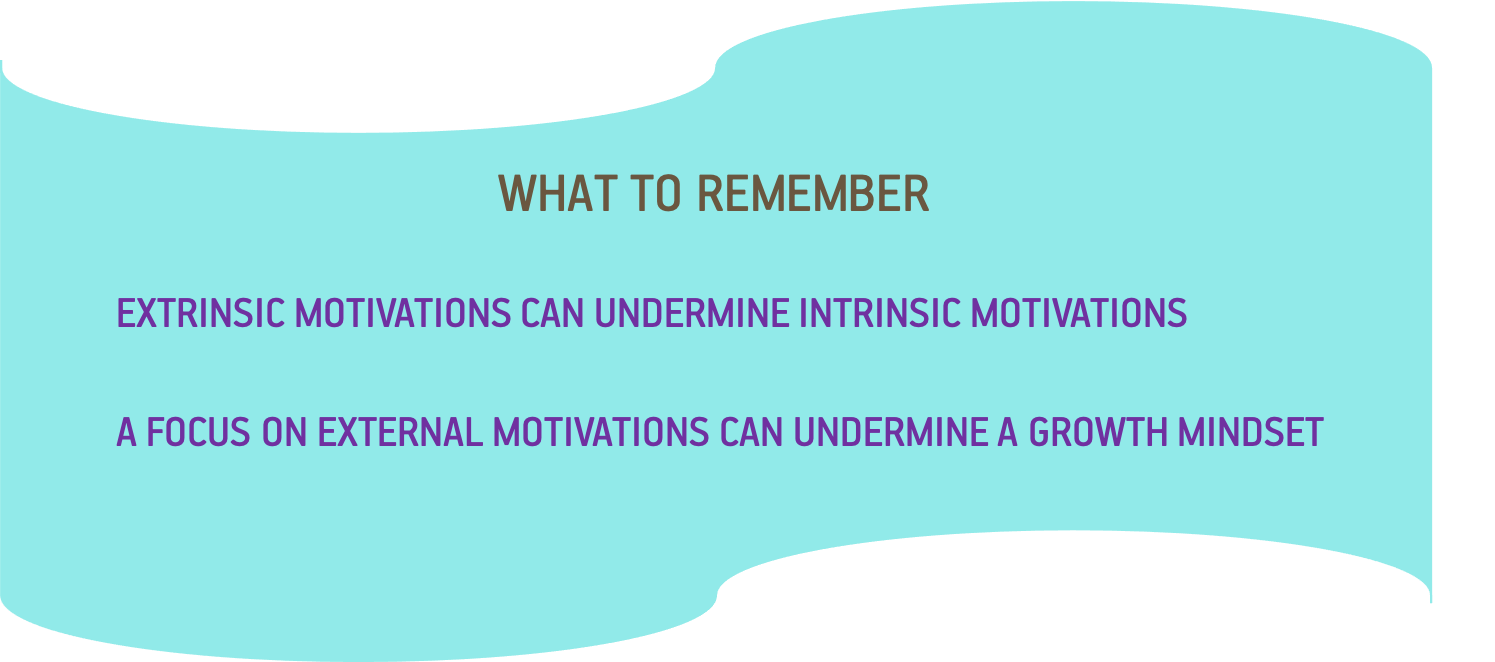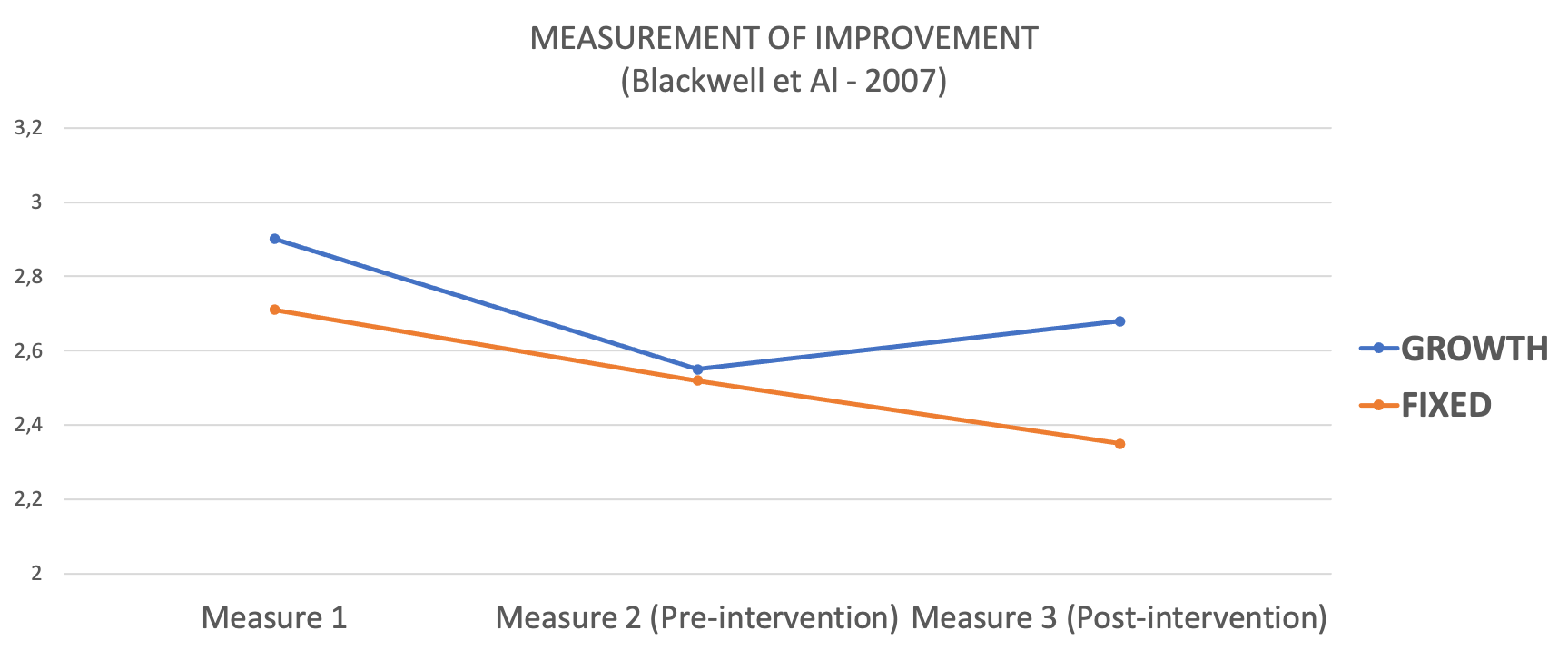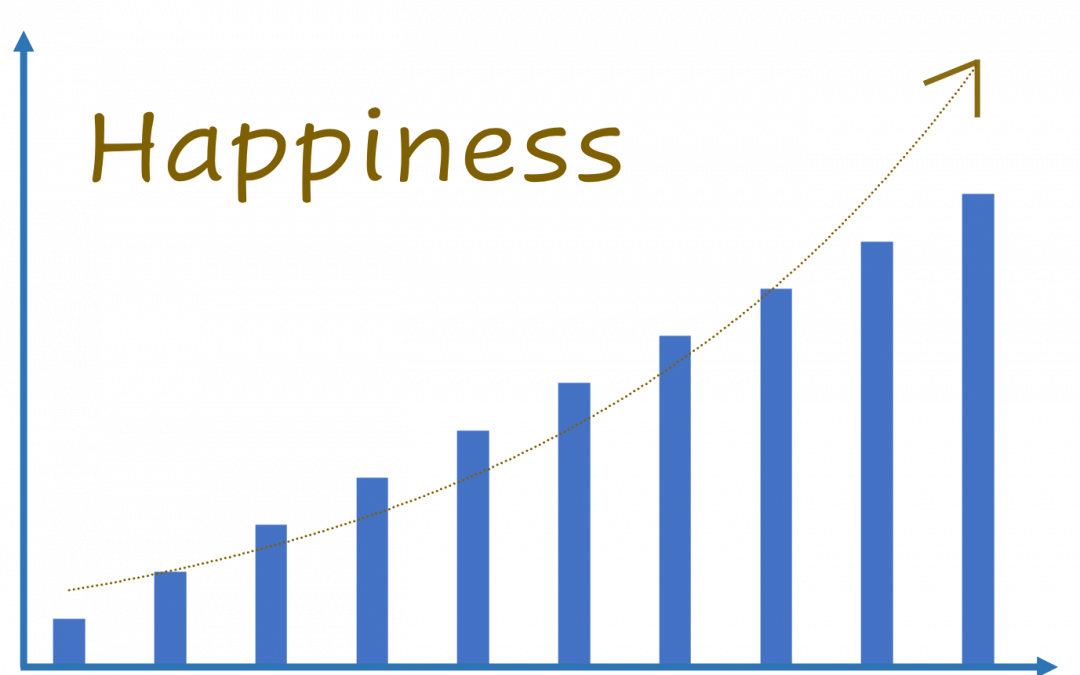We have discussed in our past articles that, whilst at many times there is the perception that obtaining something will bring great happiness, later on it is proven that reality is quite different.
For instance, students at university might have been taught that, what is important in order to feel happy, is getting good grades. Nevertheless, research confirms that is not the case, at least at the level it was expected to be. It is not the grades a student should be focusing on because, not only they are not sufficient to make someone feel satisfied, they also “steal” the internal motivation that a person has to learning new things.
Psychology splits in two categories the motives that induce behavior. The external motives and the internal ones.
External motives are those that make someone to display a behavior that they expect is going to get external recognition – grades, acceptance from parents, from society, or the avoidance of a punishment. Thus, they do what they do to satisfy an external given factor.
Internal motives are those that are born from the esoteric self, and lead a person to do something, just because he/she likes it, it gives them pleasure, it amuses or develops them. Such motives are for instance learning a subject of interest, participating on whatever entertains them, doing the sports they like, so on and so forth. There is no payment or other external motivation to do the above.
However, every time an external factor is included as a motivation factor, things get complicated. External motivators can stand against the internal disposition. External factor can interfere with an internal factor and destroy the pleasure that it can provide.
It is really sad that external factors have the power to undermine internal motivators. And an example easy to understand are school grades, especially at university level. As students feel more and more obsessed about their grades, they lose their love for learning, which was probably the original motivator for more, and the thought that prevails refers to the job or the money that can follow any studies.
A similar example could be the predisposition that most people show today, where they search for jobs that will provide them with lots of money from day one, or lots of free time. The motives of learning and conquering new capabilities that will develop their skill set and make them mighty in their professional life, seem to have vanished.
And it is indeed this, the bigger problem created by external motivators – they severely interfere with the innate tendency in life for growth and development.
Carol Dweck, researcher at Stanford University, studied the beliefs that individuals hold about own growth and development. According to her findings, people usually have one of two opposites mindsets :
- Growth mindset, where the predominant belief is that people can be educated or trained to work hard and develop capabilities and skills.
- Fixed mindset, where the dominant belief is that intelligence and skills are innate, we are born with them or not. If someone has them, good for him/her! If not, there is not much he/she can do about it.
Consequently, if a person has a Fixed mindset, that might mean that they will focus a lot on results and performance, as those are believed to be the measurements of a person’s intelligence. They confirm that people were born with some basic capacities, that cannot be lost but neither developed.
On the contrary, if a person has a Growth mindset, they will focus on results only as a measurement of progress in learning. What is important to them is to see their performance improving and that can happen only with hard work.
Fixed mindset leads to the thought that high performance comes naturally. A person will either achieve something or not.
Growth mindset leads to the thought that if improvement is the goal, hard work might be needed, and that investment makes people feel strong.
People with a Fixed mindset see hard work as negative, as it means that they do not possess the innate qualities that are required. Exertion of effort can be scary and shameful thus, consequently, they usually hide their deficiencies.
People with a Growth mindset believe that hard work is positive as it leads to improvements as time progresses. Thus, they are ready to work with their deficiencies and make the most of them. They want to see their mistakes as they are the path to learning and continue growing.

Presently, it is known that the human being can improve in any skill desired, if he/she focus and work on it. Any other belief is nothing but an erroneous concept about how the mind works. It is, however, a belief that creates many difficulties and lead some people to avoid exercising any effort, feel sorry for themselves or worry a lot about their effectiveness and all three has a negative impact on their performance.
Another interesting finding is that people with a fixed mindset start positively and perform well on things that they believe they have in-built skills. In those instances, they just demonstrate to themselves what they know. And that is possibly the only occurrence where they achieve their goals. As they have no disposition to learn and develop, if things do not go as expected, negative emotions concerning their capabilities are elicited and there is a loss of self-appreciation.
On the contrary, if people have to work on something they do not know, a growth mindset is more useful. Especially as it has no negative impact on the innate motives of human beings, even when results are not so encouraging.
Thus, a reasonable question here is whether we are at the mercy of our mindsets.
Neuroscience answers not. As there is a lot of evidence to suggest that a Growth mindset is most beneficiary, we can all acquire it, as far as we convince ourselves that focus and work can develop our skills.
That was proven by psychologists Blackwell et al, as it can be seen in the graph below. They consider the math grades of students in junior high (measurement 1). Following, they measure their performance at senior high, where it was noted that math grades deteriorated, as the level of difficulty was much increased (measurement 2).
Then, they split the students into two teams – to one team they talked about the fixed mindset and to the other they talked about the growth mindset. To one team they showed articles denoting that we are born with some basic capabilities and skills. A person is either very smart or not. Working hard has nothing to do with it and cannot alter that reality.
To the other team they showed articles that confirm that focus and hard work can improve a person’s skills. That life is about learning and developing.
Few weeks later, they checked on the grades of students (measurement 3). It was found that students that received information about the Fixed mindset got even poorer grades. Whilst the team that was exposed to the Grow mindset material had improvements on their grades. It seems that for the later it was enough to believe that their efforts would pay off.

Thus, it is obvious that is more beneficial to focus on what matters, as it is to develop a mentality that will bring a person what is most important in life, such as the free expression of innate motivations and the ability to learn and evolve.
Consequently, to achieve great happiness, it is imperative that we learn to desire the best parts of the things we desire, and that is always learning and growing – it never is money, grades, jobs and promotions. Those will come as a follow up of our efforts to flow naturally with life.



